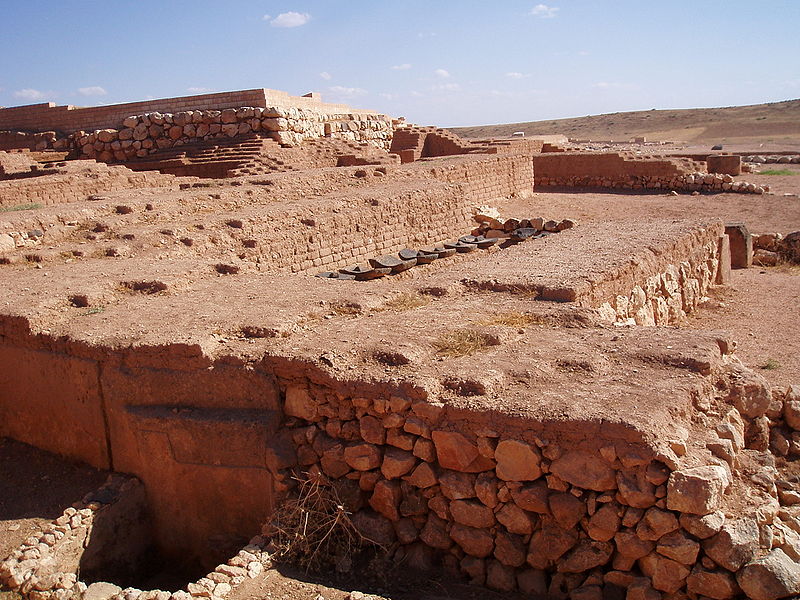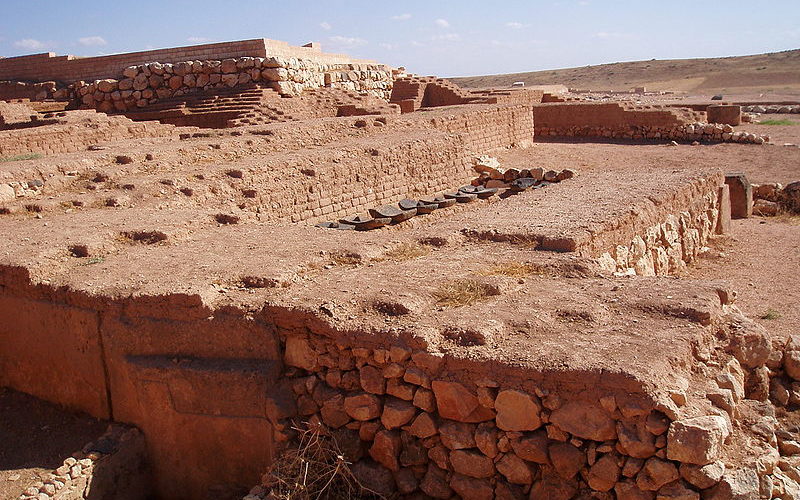Biblical Site Threatened by Syrian Civil War
In October 1975, between 20,000-30,000 cuneiform tablets were found at Ebla, modern day Syria, ancient Aram. Basically, this is the area that the Biblical patriarch Abraham hailed from around 1800 BCE. The scholar who first deciphered the ancient writings is Assyriologist Giovanni Pettinato. Pettinato claimed that he found references to Biblical sites such as Hazor, Megiddo, Lachish, Dor, Gaza and even Jerusalem (in the form Salem). Even Sodom and Gomorrah are mentioned in the tablets, according to Pettinato. More than this, Pettinato found Biblical personal names on the tablets e.g., Abram, Ishmael, Israel and David. For example, one leader of Ebla was named “Ebrium” or “Ebrum”. Did this refer to, in Hebrew, Avram i.e., Abraham? Was it his ancestor Eber, mentioned in Genesis 10:25? Was the name referring to the Hebrew Ivri i.e., the name that Abraham adopts as the father of the Hebrew nation?

The minute Pettinato, along with archaeologist Paolo Matthiae of the University of Rome published these findings, they came under tremendous criticism. Scholars were quick to attack the translations. Some said that Pettinato mistranslated, others said that the names did not mean anything because they did not refer to, for example, thatAbraham. It was another Abraham. Abraham was a common name at Ebla. So a coalition of true scholars, jealous scholars and Biblical minimalists moved quickly to discredit the Biblical connection. More than this, the Syrian government got involved and pressured Matthiae and Pettinato to make declarations minimizing the Biblical connections. They figured that anything that is good for Biblical archaeology helps modern Israel’s connection with its historic past. Their job, they reasoned, was to minimize that connection. In February 1978, A Syrian propaganda magazine, Flash, published an apologetic declaration by Pettinato and Matthiae, minimizing the Biblical connections. Only after this Soviet style recantation were the scholars allowed to continue digging. But the world’s attention was now no longer on the site. The pseudo-scholarly criticism and the political censorship worked. Ebla fell off the radar. The Biblical connections went unexplored. Now Ebla is in the headlines again. This time, it’s the Syrian civil war that is threatening the site. The treasure may be lost and we haven’t even had a chance to appreciate its importance, or to fully decode the secrets that it holds. Hopefully it’s not too late. Click here to read what the New York Times had to say.

